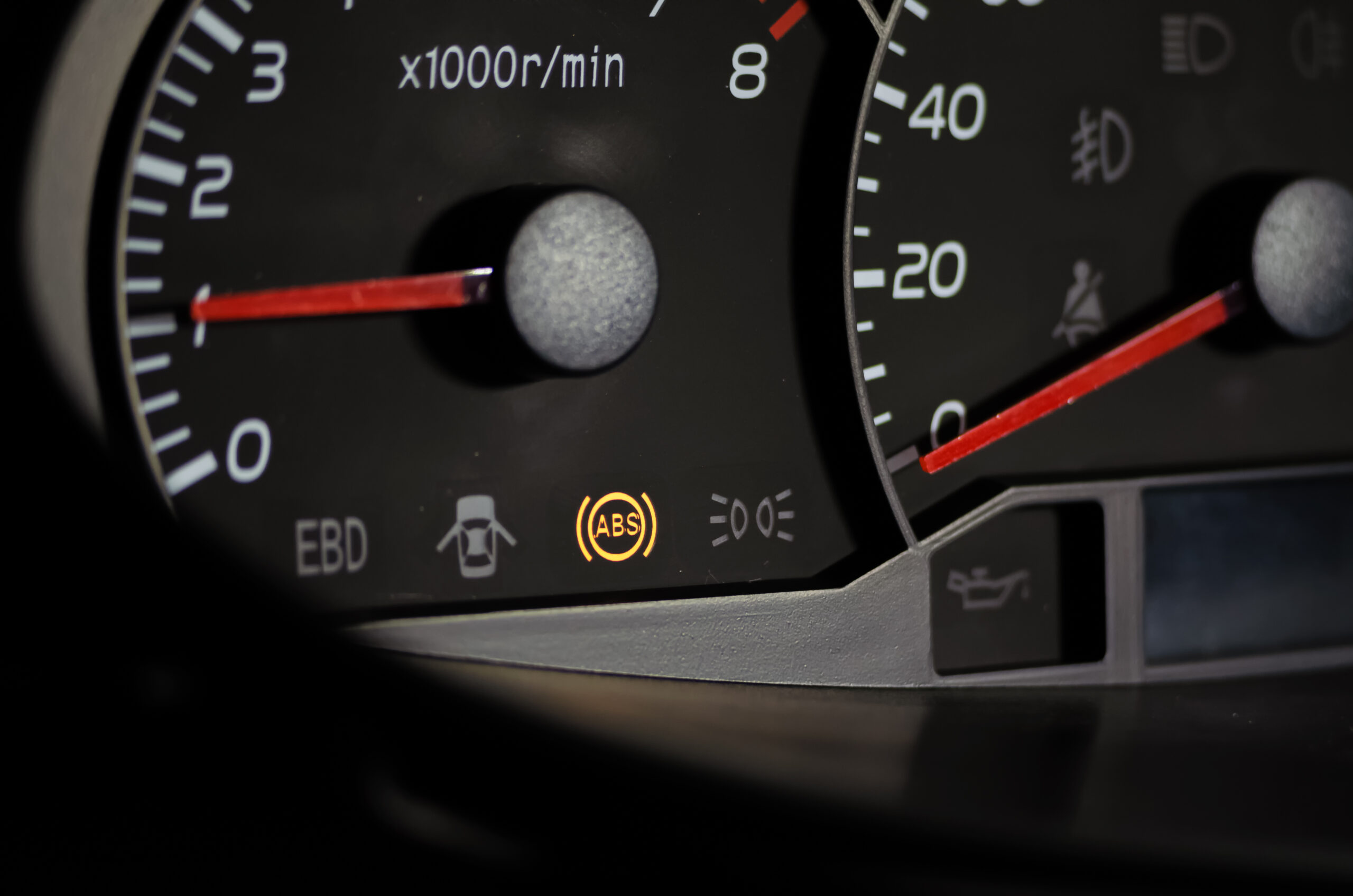If you have ever driven a vehicle that was manufactured before the early 1990s, chances are it did not have an anti-lock braking system (ABS). ABS is a major safety feature in modern vehicles that originated with aircraft brakes to prevent slippage when landing. Eventually, anti-lock brakes became standard on all US manufactured vehicles in the 1990s, and mandatory in the 2000s. In this month’s blog post, we review how the anti-lock brake system works, and signs to look out for if there are issues with your brakes.
What are anti-lock brakes and how do they work?
In simple terms, the anti-lock braking system is a component of the vehicle braking system that prevents the vehicle wheels from locking up or skidding in heavy braking situations.
Without anti-lock brakes, sudden braking may cause the wheels to lock up and skid, especially if the vehicle is driving on a slippery surface. When the wheels lock up and lose traction, the driver is unable to control the vehicle and it may result in a collision or accident. This important safety feature has saved millions of lives from serious accidents or fatality.
To address the possibility of skidding, the anti-lock braking system is designed to intervene for the driver in these situations. The anti-lock braking mechanism uses sensors to continually detect wheel speed. When the sensors detect a change in the speed, such as sudden deceleration, the control device responds to the sensor data by systematically pumping the brakes to slow the vehicle down.
The main components of the anti-lock braking system include:
- Sensors: detect the speed of the wheel rotation
- Controller: responds from sensor data to control any necessary braking
- Pump: applies hydraulic pressure to the calipers and brake drums
- Valves: release or stop pressure on the brake line fluids
What type of problems can develop with anti-lock brakes?
If you are experiencing an issue with your anti-lock braking system, the ABS warning light will most likely illuminate on your dashboard. Don’t be alarmed if you see the light illuminate when you first turn on the vehicle, this is a standard part of the ignition process. However, if the light does not go out after starting, then this may indicate a problem.
If there’s a problem, you may also notice the wheels locking up when having to brake fast, or the brake pedal may be unresponsive. Since the anti-lock brakes are a critical safety feature, you should have them inspected right away for any failure.
More common failures occur with the sensors. The sensors may become contaminated from road debris or there may be faulty wiring that’s not allowing for a proper signal to the controller. A trained service professional will use diagnostic tools and inspection to determine the root cause of your anti-lock braking system problems.
If you have concerns about your anti-lock brakes, contact the service professionals at Best Western Transmissions today to schedule an appointment for a full inspection of your brakes.

